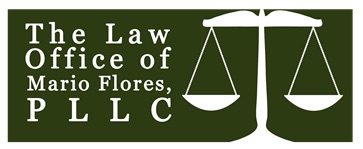Probate Attorney in Austin, Texas
"Probate" bears some negative connotations among most people. They think that probate is something to avoid, a process in which the court makes all the decisions and heirs are left subject to these decisions.
The fact is that probate is a routine and necessary process for most people when they pass away. For those of us who have handled estate planning for clients for more than a decade, probate is no mystery. At The Law Office of Mario Flores, I enjoy demystifying the probate process for my clients from Austin, Round Rock, San Marcos, Georgetown, and the rest of Texas.
If you want to know more about how the probate process affects your estate planning, or if you have been named the executor of someone's estate and need assistance fulfilling your duties, call my office today.
What Is Probate?
Probate is the legal process for settling the estate of someone who has died. If there is a will, it is validated in probate. If the will is challenged, validation can take time.
The estate is inventoried and appraised, debts and taxes are paid, and then the residual of the estate is distributed among the heirs. If there is a will, distribution complies with its terms. If there is no will, the court uses the Texas laws of intestate succession to distribute the estate.
Assets of the decedent with named beneficiaries, such as life insurance, bank accounts, vehicles, and other items with a transfer-on-death designation, and those assets owned jointly with a surviving spouse, are not subject to probate. There also are certain exemptions under Texas law.
Assets without transfer designations, however, and those owned solely by the decedent are subject to probate. This would include personal property, real property, bank and investment accounts, art and collectibles, and autos. It also includes the decedent's share of assets owned by tenants in common.
There are ways you can avoid some or all your assets from being subject to the probate process. What that means is that fewer assets go toward paying creditors and more go to those you want to leave them to. Working with an experienced estate planning attorney now will benefit those you love after you are gone.
How Are Estates Administered in Texas?
The two primary ways estates are administered in Texas are independently and dependently. In independent administration, the executor is allowed to carry out the duties of administration without seeking permission of the court at every step. Dependent administration requires that the court be heavily involved in every matter of administration of the estate.
Most of the time, the person who makes a will requests independent administration by their named executor and asks the court to waive the need for the executor to purchase a bond to protect the estate from illegal acts of the executor.
Texas law also allows for expedited means for families to handle small estates with minimal assets.
What Happens in the Probate Process?
When there is a will, the named executor begins their duties once the court validates the document. If there is no will, the court will name an executor, often an adult family member. The executor's administration duties include:
- Providing public notice of the opening of the estate
- Identifying and notifying heirs and beneficiaries
- Inventorying all assets of the estate
- Valuing the assets by appraisal
- Liquidating certain assets if needed to pay taxes and debts
- Paying taxes and creditors
- Distributing the residual of the estate to beneficiaries named in the will or to heirs under the laws of intestate succession if there is no will
- Providing a full accounting to the court and closing the estate
How Can a Probate Attorney Help?
A skilled estate planning lawyer can help you minimize exposure of your assets to the probate process, or even help you avoid probate all together, using tools such as revocable and irrevocable trusts. Your attorney is invaluable in providing guidance and creating legal documents that will ensure your wishes are carried out when you die and protecting those you love.
Every adult should create and execute estate planning documents. Because circumstances will change during your lifetime as you marry or divorce, have children, and accumulate assets, you will need to update your documents from time to time. That means the relationship you have with your estate planning attorney will be a lifelong one.
If you are an executor administering an estate, consulting with an attorney can help ensure that you comply with the duties you have been entrusted with by the decedent. If the will is being challenged, your attorney can help you face the challenge.
Probate Attorney in Austin, Texas
Careful and thoughtful planning for when you are no longer here is a gift to your loved ones. At The Law Office of Mario Flores, PLLC, I'm ready to help you understand the probate process in Austin and throughout the state of Texas. Get started by calling my office to schedule an initial one-on-one appointment today.
